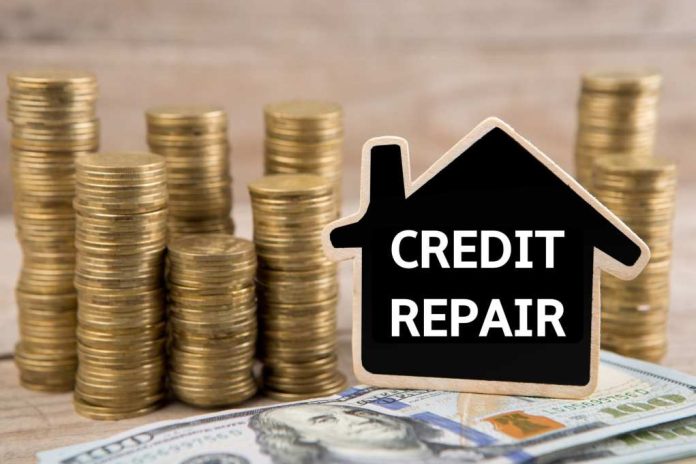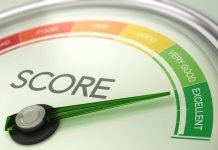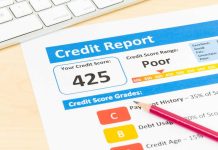
Homeownership is an important part in the lives of many different people. In fact, 91% of Americans would like to own at least one home within their lifetime. However, that dream is still a daunting one because 88% of American renters have concerns about actually buying a home. One popular concern is a credit score. Not every type of mortgage has the same credit requirements. This can leave people dealing with fewer options or not being about to qualify at all! That’s why it is important to review your home buying options and get a better understanding of your credit score. You may find that you could benefit from credit repair before buying a home!
Different Mortgage Options
Buying a home is not a super simple process! There are a variety of mortgage opportunities that can benefit people in different ways. Popular mortgages include:
- Conventional Mortgages
- Government-Backed Mortgages
- Reverse Mortgages
Conventional Mortgages
Conventional mortgages are what most consumers think of when it comes to buying a house. These are loans that are not backed by the government. There are two main types of loans which are fixed-rate and adjustable-rate. Fixed-rate mortgages have the same interest rate over the course of the loan. However, adjustable-rate mortgages go up and down over the course of the loan. Some common options include:
- Adjustable-rate mortgage loan
- 30-year fixed-rate mortgage loan
- 15-year fixed-rate mortgage loan
Adjustable-Rate Mortgage Loan
While these loans have a fixed-rate for a portion of the mortgage at the beginning, after that period ends it will go to an adjustable-rate. The length of time that this type of mortgage has a fixed-rate can vary based on the lender and applicant but generally lasts for 1, 5, 7, or even 10 years. This is a great option for home buyers that believe interest rates will lower or don’t expect to have a mortgage for a long period of time.
30-Year Fixed-Rate Mortgage Loan
When a mortgage has a fixed-rate it will stay at the same interest rate at the point of signing over the course of the 30 year loan. This is one of the most popular options that home buyers choose since people tend to have a lower monthly payment compared to other loan options. This is a great choice for people who like a predictable interest rate and want a lower monthly payment that spans over a longer period of time.
However, it’s important to keep in mind that these loans will pay more in interest over the course of the loan compared to other fixed-rate loan terms. For example, a person would pay more in interest over the course of their 30-year mortgage at a 3.5% rate compared to a 15-year loan at a 3.5% rate. That’s because they are paying interest on a loan for another 15 years!
15-Year Fixed-Rate Mortgage Loan
Just like 30-year fixed-rate mortgages, the interest rate for 15-year fixed-rate mortgages stays the same over the course of the loan. These are commonly used when homeowners refinance their mortgage. Even though these mortgages tend to have higher monthly payments because the total loan term is shorter, they generally have lower interest rates than longer loan terms.
Government-Backed Mortgages
Another option that people consider are government-backed mortgages. These mortgages are backed by the federal government. This provides lenders some more security when lending to eligible borrowers that may come with higher levels of risk. Some government-backed loan options includes:
- FHA mortgage loan
- VA mortgage loan
- USDA mortgage loan
FHA Mortgage Loan
These mortgages are insured by the Federal Housing Administration (FHA). Since these loans are government-backed, they allow more flexibility for homebuyers. They can have down payments for as low as 3.5%, and allow homebuyers to qualify with credit scores as low as 500. However, these mortgages will require private mortgage insurance (PMI)! This is a great option for homeowners that have low credit scores and want to pay a lower down payment.
VA Mortgage Loan
These mortgages are insured by the United States Department of Veterans Affairs (VA). Only qualifying military service members and veterans can consider this option. Since this is an exclusive mortgage opportunity, it comes with plenty of benefits! Some benefits of this loan include the fact that there is no down payment requirement, and no mortgage insurance requirement. However, these mortgages have upfront VA funding fees that home buyers should be aware of. This is a great option for eligible military members who want to get a low interest rate and have no down payment minimum. Also VA mortgage loans require lower credit scores. Credit scores can range from as low as 580 to 620.
USDA Mortgage Loan
These mortgages are insured by the United States Department of Agriculture (USDA). Only eligible individuals that want to live in specified rural (and some suburban) areas can benefit from this mortgage option. Some benefits of this type of mortgage is the fact that there is generally no down payment requirement, and there are other assistance home improvement grants and loans available. However, it is important to be aware that there are income and property value limits that apply. This is a great option for those that want a low or no down payment that don’t mind living in rural (and some suburban) areas.
Reverse Mortgages
A reverse mortgage is designed to help those that are 62 years old or older. It’s a great way for homeowners to benefit by getting cash from their home instead of making payments! This provides eligible borrowers the opportunity to borrow against the value of their property and get funds in the form as a lump sum payment, monthly payment, or even line of credit.
Understanding Credit Scores
Your credit score is a number that falls between 300 to 850. Credit scores help lenders determine a consumer’s creditworthiness. Which means that they can get a better understanding of how a consumer is when it comes to borrowing money. Credit scores are determined by credit bureaus (also known as credit reporting agencies) using information found on the consumer’s credit report. Your credit report has information about your credit file like payment history, credit usage, etc.
When calculating your credit score, credit bureaus will use a scoring model to determine how items on your credit report will impact your score. There are two main credit scoring models which are the VantageScore model or the FICO scoring model. However, the more popular scoring model is the FICO one!
What Factors are Important for Your Credit Score?
Regardless of which scoring model you use, there will be five main factors that have an impact on credit scores. These five factors include:
- Payment History
- Credit Usage
- Length of Credit History
- Hard Inquiries
- Different Types of Credit Accounts
Payment History
This is one of the most important factors of your credit score because it accounts for 35% of it. Payment history includes late payments, on-time payments, collection accounts, and more. This is one of the best ways that lenders can see how you are as a borrower.
Credit Usage
The amount of credit you have used is known as your credit utilization ratio. This ratio looks at the credit you are using compared to your total credit limit available. For example, if you have a total credit limit of $4,000 but are using $1,000 of credit then your credit utilization ratio would be 25%. This is the second most important factor of your credit score since it accounts for 30% of it.
Length of Credit History
The length of your credit history is important because it let’s lenders understand how you handle credit over both the long-term and short-term. Your credit history will consist of your oldest account, your newest account, the average age of your accounts, etc. While this may not be one of the most important factors of your credit score, it still accounts for 15% of it.
Hard Inquiries
Hard inquiries account for 10% of your credit score. There are two types of inquiries, there are either hard inquiries or soft inquiries. While soft inquiries do not have an impact on your score, hard inquiries do. Hard inquiries (also known as hard pulls) happen when a consumer applies for a new line of credit like a credit card, auto loan, etc. This allows lenders to get an in-depth look at your credit file in order to better understand their risk factors.
Different Types of Credit Accounts
There are two main types of credit. There are installment loans and revolving credit. An example of an installment loan would be like a mortgage, an auto loan, etc. On the other hand, an example of revolving credit would be a line of credit like a credit card. This factor accounts for 10% of your credit score.
Understanding Different Credit Scores
Now that you understand what factors impact your credit score, you will want to make sure you know where your score falls (especially if you are interested in buying a home). There are easy ways that you can check your credit score. You can use an app like Credit Karma, check with your financial institution, or even review your score by getting a copy of your credit report. Regardless of how you check your score, you should make sure that you understand where your score falls depending on the scoring model. If you look at the FICO scoring model:
- Poor (scores of 300-579)
- Fair (scores of 580-669)
- Good (scores of 670-739)
- Very Good (scores of 740-799)
- Exceptional (scores of 800-850)
On the other hand, the VantageScore model has a different set of rankings and ranges! If you look at the VantageScore model:
- Very Poor (scores of 300-499)
- Poor (scores of 500-600)
- Fair (scores of 601-660)
- Good (scores of 661-780)
- Excellent (scores of 781-850)
Understanding Credit Repair When Getting a Home
Your credit score is an important part of financing when it comes to getting your home. If you are trying to get a certain type of mortgage, you can find yourself struggling to meet eligibility requirements no matter where you go to finance if you have poor credit. That is why it is important to consider credit repair. Some ways that you can repair your score includes:
- Get Into Better Credit Habits
- Dispute Errors on Your Credit Report
- Use a Credit Counseling Agency
- Pay for a Credit Repair Company
Get Into Better Credit Habits
The way you manage your credit plays a huge role when dealing with credit repair. There are a variety of different ways that you can improve your credit habits. Some popular tips would be to:
- Only open new lines of credit when you need it
- Keep your credit utilization ratio below 30%
- Make sure you pay your bills on time when they are due
- Regularly keep an eye on your credit score
- Don’t allow too many hard inquiries at once
Dispute Errors on Your Credit Report
Another way that you can handle credit repair is by disputing errors you find on your credit report. You can get a free copy of your credit report every year from the three main credit bureaus. Once you get this report, you can review it to look for any errors. If you find inaccurate items on your credit report, you have the right to dispute the item with a credit bureau. This is thanks to the Fair Credit Reporting Act (FCRA) which states that credit bureaus must report accurate information. While you have the option to choose one credit bureau to dispute with, you can also choose to dispute with all the major bureaus as well!
Once you submit a dispute, the credit bureau has 30 days to respond. If the item is found to be inaccurate or unverifiable, then it will be removed from your credit report. This means that any negative impact that it was having will no longer affect your credit score either. This is another free type of credit repair.
Use a Credit Counseling Agency
Sometimes people can feel overwhelmed when it comes to dealing with their finances. That is why they turn to credit counseling agencies for some extra support! A credit counseling agency is generally a non-profit organization that has trained and certified credit counselors. These credit counselors can provide support for people when trying to handle their current financial situation. They can provide counseling on a variety of topics like:
- Credit counseling
- Debt counseling
- Housing counseling
- Mortgage counseling
- Student loan counseling
Pay for a Credit Repair Company
While there are plenty of free ways to handle credit repair, some people still choose to go to a credit repair company. Instead of handling the dispute process on your own, you can use a credit repair company. These credit repair companies will handle the dispute process on your behalf! They would be the ones to get a copy of your credit report, review it for any inaccurate items, and dispute if they find any. They may offer other services at these companies as well like credit monitoring services, debt management plans, etc. These companies are not free and only provide a service that consumers can do on their own. On average, a credit repair company will cost between $69 to $149 a month.
Commonly Asked Questions
The process of buying a home can be daunting. Especially, if you need to focus on credit repair before you do. There are plenty of questions that others have had about credit repair and their mortgage that you may have as well.
What are The Three Major Credit Bureaus?
The three major credit bureaus are Transunion, Equifax, and Experian. While there are more than that across the country, these are the three most popular ones.
Is There a Credit Score Requirement for a Fixed-Rate Mortgage?
If you are interested in a fixed-rate mortgage then you should have a minimum credit score of 620. That’s because a majority of lenders use this as their minimum required credit score in order to be eligible for this type of mortgage.
How Long Does Credit Repair Take?
Credit repair can have a variety of different timeframes. You can begin seeing improvements in your credit in as little as one month! However, the way that you choose to handle your credit repair will impact how long it takes. For example, if you dispute errors on your credit report then you can expect to see improvements within three to six months.
What is the Importance of Credit Repair to Get a Mortgage?
It can be beneficial to fix your mortgage before buying a house because you can qualify for more financing opportunities, better interest rates, and more flexible loan terms. The recommended credit score would be a minimum of 620. However, a good rule of thumb is that the better the credit score you have then the better the financing opportunities you’ll have.
Why is it Hard to Repair Credit?
Many Americans feel like it is hard to repair credit. However, it doesn’t have to be. Even if you don’t feel confident working on your credit on your own you can get help from a professional at a credit counseling agency!
Overall
The process of buying a home can definitely be stressful and complex. Especially when you need to keep credit repair in mind. There are a variety of different mortgage options that you can choose from that have their own set of eligibility criteria. Popular mortgages include:
- Conventional Mortgages
- Government-Backed Mortgages
- Reverse Mortgages
When looking for a mortgage, you will generally see eligibility requirements like a minimum credit score. That is why you may benefit from credit repair. While some may have forgiving requirements like an FHA loan will require a minimum credit score of 500, other mortgages like conventional mortgages will generally have a minimum requirement of 620. Luckily, if you need to improve your credit score, there are plenty of ways that you can handle credit repair! You can:
- Get Into Better Credit Habits
- Dispute Errors on Your Credit Report
- Use a Credit Counseling Agency
- Pay for a Credit Repair Company
While credit repair may not result in a change overnight, it can definitely happen quicker than you realize. That is why you may benefit from beginning credit repair sooner rather than later, especially before buying a home.
Article References
https://www.nerdwallet.com/blog/2018-home-buyer-report/
https://www.nerdwallet.com/article/mortgages/types-of-mortgage-loans
https://themortgagereports.com/23319/7-mortgage-programs-low-minimum-credit-score
https://www.investopedia.com/mortgage/reverse-mortgage/
https://www.investopedia.com/terms/c/credit_score.asp
https://www.kiplinger.com/slideshow/credit/t017-s003-how-to-raise-your-credit-score/index.html
https://www.creditkarma.com/advice/i/understanding-credit-counseling
https://www.experian.com/blogs/ask-experian/how-do-credit-repair-companies-work/
https://www.nerdwallet.com/article/finance/credit-repair
https://www.quickenloans.com/learn/credit-score-to-buy-a-house
https://www.forbes.com/advisor/credit-score/how-long-does-it-take-to-improve-your-credit-score/
https://www.debt.com/credit-repair/how-long-does-credit-repair-take/
https://www.rocketmortgage.com/learn/what-credit-score-is-needed-to-buy-a-house




























